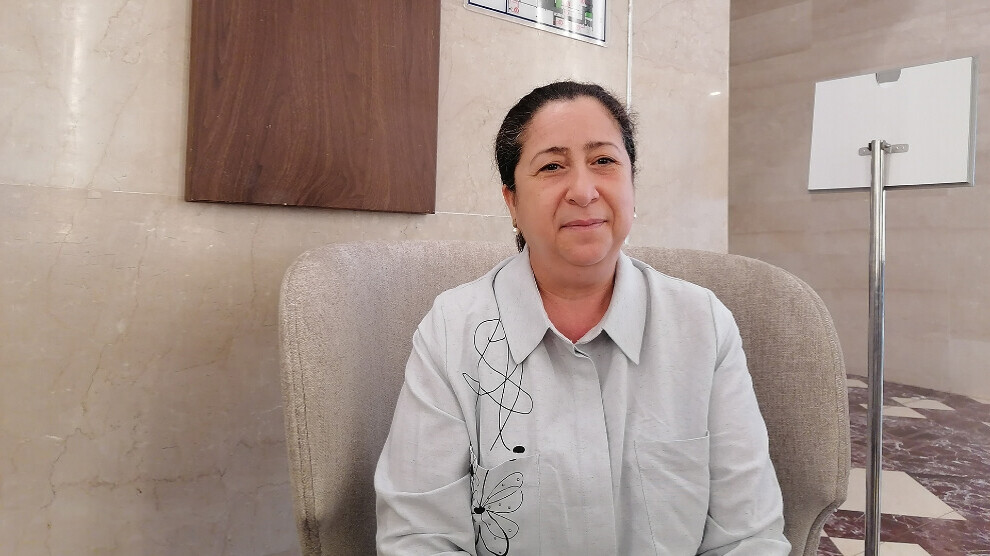International Day of Rural Women: A Step Toward Agricultural Justice
Lamia Qam Rajaybi, Director of the Rural Women Unit at the Farmers’ Union, stressed the importance of moving beyond the symbolic nature of the International Day of Rural Women, emphasizing that this occasion should serve as a genuine opportunity.

Naziha Bou Saidi
Tunisia- There are more than 1.7 million rural women in Tunisia, representing a large portion of the agricultural labor force. Most of them work as seasonal workers or unpaid laborers. The International Day of Rural Women is celebrated annually on October 15, and in this context, Lamia Qam Rajaybi stated that the Farmers’ Organization seeks to help rural women progress — from family breadwinners or farm laborers to small business owners, and eventually to agricultural investors — while stressing the need to enable them to own land.
She explained that statistics show women own only 5% of agricultural land, a figure that calls for greater efforts in raising awareness and empowering women to reach decision-making positions without fear of claiming their property rights.
Regarding the regularization of land ownership, Qam Rajaybi noted that the Farmers’ Union recently launched a new project in cooperation with the organization ADLO to assist rural women and youth in legalizing their land status and providing them with means of production such as land, equipment, and tools — while also integrating modern technology into agriculture.
She pointed out that many rural women lack awareness of how to access available funding, as many are unfamiliar with the procedures for applying for financial support. This, she said, underscores the need to strengthen the roles of support, financing, and training institutions.
Qam Rajaybi highlighted the importance of training as a key element in empowering rural women. She explained that the union has succeeded in implementing the “field school” model, which involves conducting training directly on farms and awarding certificates that qualify women for funding.
Furthermore, she announced an agreement with the Institute of Pedagogy and Continuing Education in Sidi Thabet to identify the training needs of rural women, noting their interest in short courses in fields such as poultry farming, where women can start with small coops and expand into larger projects over time.
As part of promoting women’s initiatives, she announced the organization of a “Farm to Consumer Market” on Thursday, October 16, along Habib Bourguiba Avenue in Tunis, in celebration of the International Day of Rural Women. This initiative offers a valuable opportunity for rural women to market their organic and local products directly to consumers, thereby strengthening their economic presence and valuing their contributions to the agricultural sector.
She also highlighted the launch of the “Tunisian Farmers’ Market” initiative, aimed at supporting authentic local production and creating a space that connects producers directly with consumers without intermediaries. Qam Rajaybi expressed hope that this experience would continue due to its positive economic and social impact.
Qam Rajaybi further emphasized the importance of health awareness in rural areas, noting that the lack of awareness regarding the importance of prenatal medical follow-up remains a major issue that can lead to serious health complications for newborns.
She explained that the Farmers’ Union plays an active role in organizing awareness campaigns on social and health coverage through free rural clinics, affirming that it is the union’s responsibility to amplify the voice of rural women and deliver it to decision-makers.
Qam Rajaybi also called on the government and policymakers to support the family farming plan currently being developed by the union within the framework of the United Nations Decade of Family Farming (2019–2028). She explained that this plan includes seven main pillars, one of which focuses on women and youth, urging the state to include it in the national budget to ensure its implementation and achieve its development goals.
Finally, Qam Rajaybi reaffirmed that rural women are the cornerstone of family farming, as they rely on traditional, eco-friendly agricultural methods that help preserve soil fertility, rationalize water use, and mitigate the impacts of climate change.
In conclusion, she called for intensifying women’s agricultural outreach efforts, stressing the importance of coordination between civil society and the state. She clarified that the role of organizations lies in proposing ideas and initiating programs, while the state bears the responsibility of enacting the necessary laws and legislation to support these efforts and ensure their sustainability.
